Bicol University

Founded: 1969
Address: Rizal St, Daraga, Albay - Legazpi, Philippines
Phone: +63 52 4811759
Address: Rizal St, Daraga, Albay - Legazpi, Philippines
Phone: +63 52 4811759
Here you find out Bicol University complete information about fees, location, degree Bicol University offers, number, website, and much more. Bicol University is a leading university in Legazpi - Philippines.
You can also find out jobs at Bicol University for students, teachers, and professors. We also update the database for an internship at Bicol University for students.
An institution promoting scholarship, leadership, character, and service as its core values, Bicol University remains to be the premier state university in the Bicol Region. It boasts a population of 26,352 scholars for school year 2015-2016, served by 542 faculty and 329 non-teaching personnel. Founded in 1969, it has risen to SUC Level IV status, a prestige it has enjoyed since 1998. It is... home to top notchers in the fields of Accountancy, Engineering, Midwifery, Nursing, and Social Work.
Bicol University evolved out of the six reputable educational institutions integrated to form the first state university in Region V through Republic Act 5521 enacted on June 21, 1969. The College of Education was established out of the fusion of Bicol Teachers College (BTC) and its Laboratory School, the Daraga East Central School in Daraga and the Albay High School in Legazpi City. The Bicol Regional School for Arts and Trades (BRSAT) with a vocational high school unit attached to it was the precursor of the College of Engineering and the College of Industrial Technology. The Roxas Memorial Agricultural School (RMAS) in Guinobatan, Albay, also with a vocational high school, became the College of Agriculture and Forestry. The School of Fisheries in Tabaco City and its high school became the College of Fisheries, which is today known as the Tabaco Campus.
The Bicol University, a state university in Region V, was created on June 21, 1969 through the passage of Republic Act 5521 but was institutionalized on September 21, 1970 by virtue of Resolution No. 1 of its Board of Regents. Section 2 of the aforementioned Act mandates that the following schools comprise the University: the Bicol Teacher"s College (BTC) with its Laboratory School (BTCLS) at Daraga Albay, the Daraga East Central School also in the same municipality, the Albay High School in Legazpi City- all of which have become the College of Education with its Laboratory School; the Bicol Regional School of Arts and Trades (BRSAT) in Legazpi now the College of Engineering and the College of Industrial Technology; the Roxas Memorial Agricultural School (RMAS) at Guinobatan , Albay which now is the College of Agriculture; and the School of Fisheries at Tabaco Albay, now the College of Fisheries otherwise known as the “ Bicol University Tabaco Campus”. These academic institutions most of them founded for more than half a century formed the matrix of Bicol University.
Through the leadership of historian-lawyer Dr. Ricardo A. Arcilla, who, as Bicol University"s first president, has been given charge over the institution for its decade of existence, the developmental path of BU was charted. Unity and harmony was considerably attained among the initial constituents within the units of the University. Policy making was systematized. To engender powerful forces of forward movement in education and research, Graduate Education was offered in June 1972 with its first batch of enrollees in the Master of Arts and Education Program. In the same year, the College of Arts and Sciences was established, followed by the College of Nursing in 1973.
The ensuing decade of university existence was marked by a period of linkages with several organizations and agencies, rapid growth, and new spectra of activity such as the Center of Cultural Studies, Computer Center, Audio-Visual production Center, including a number of community and sxtension projects. With Judge Aquilino B. Bonto running the cogwheels of the university, the decentralization of the administrative and financial management of the University was realized; thereby endowing the colleges with more autonomy.
It is to his merit that a Medium-term Development Plan of BU was plotted. In 1981, an externally funded program supported by the World Bank was organized – the Regional Institute of Fishery Technology in the College of Fisheries that aimed to give a strengthened Diploma in Fisheries Technology Program. This diploma program remained even after the World Bank"s support ended on December 31, 1988.
The year 1987 was significant to the BU College of Agriculture (BUCA) for it was the time when the institution was chosen as one of the implementers of the Agricultural Training Institute of the Agricultural Technology Education Program by the Department of Education, Culture and Sports. Financed by an Asian Development Bank loan, BUCA served as a pilot provincial Technological Institute in Agriculture.
Five years later, two more achievements were put on line; the rise of the BU Institute of Communication and Cultural Studies (BUICCS) to give way to the Bachelor of Communication Arts curriculum, and the hosting of the Regional Science Teaching Center of the Department of Science and Technology in Region V (DOST). Owing to Dr. Patria G. Lorenzo, the third president who is a multi-awarded educator and leader, infrastructure development was carried out. However, cultural and value transformation was rendered of paramount importance.
The increasing number of enrollees and the changing demands of the times paved the way for the establishment of the BS Forestry Program in 1993; hence the College of Agriculture was renamed “College of Agriculture and Forestry.” Likewise, the College of Fisheries was restructured to be the BU Tabaco Campus. The following year, the Science Teaching Center hosted by BU was made a component unit of the University. Within a span of three years, the BU Gubat Campus was converted into a Bicol University Extension Program, similar to that of Camp Crame. In 1995, the Computer Science Institute was born in response to the extreme mobility of Communication and Information Technology.
Its founding went hand in hand with the renaming of the School of Arts and Trades as “College of Industrial Technology,” and the shaping of the Institute of Physical Education, Sports and Recreation to manage PE classes and Sports and Recreation programs of the University. All these would not have materialized if not for Dr. Lylia Corporal-Sena, the fourth University president who took that bold step to expand BU"s academic, research and extension endeavors.
From 1999-2003, the decentralized administrative and fiscal system in the University was fortified. Remarkable leaps in the information and Technology programs were achieved, and the drawing of a Comprehensive Development Plan was done. Under the presidency of Dr. Emiliano A. Aberin, the University, likewise, integrated the School of Philippine Craftsmen in Polangui, Albay. The unit is known at present as the BU Polangui Campus.Bicol University continues to forge viable ways to be in the forefront of service to the region and the nation. Under the first two-year stewardship of Dr. Susana C. Cabredo, the sixth president of the University, the blueprint of the Comprehensive Development (ComDev) Plan had finally taken shape. It had paved the way for the restructuring of the University"s academic courses that gave birth to at least four new colleges: the College of Arts and Letters (CAL), the College of Science (CS), College of Business, Economics and Management (CBEM), and the College of Social Sciences and Philosophy (CSSP). Dr. Cabredo had also effected administrative issuances aimed at achieving the very essence of the ComDev Plan, which included the deployment of personnel and faculty members, clustering of administrative and academic workforce, and designating of officials to new posts.The Institution hopes to be a purveyor of “academic excellence through productive scholarship” in a world where the individual has his own cup to fill, a pace and direction to follow.
An effective and efficient admission system by which applicants to the elementary and high school departments and to the various undergraduate courses are thoroughly screened with the end in view of providing the labor market with quality graduates for global development.As a testing center, the office shall evolve into a duly accredited Regional Psycho - Educational Testing Center, serving the psychological testing needs of external clients from the school, industry, clinical and community settings.
You can also find out jobs at Bicol University for students, teachers, and professors. We also update the database for an internship at Bicol University for students.
An institution promoting scholarship, leadership, character, and service as its core values, Bicol University remains to be the premier state university in the Bicol Region. It boasts a population of 26,352 scholars for school year 2015-2016, served by 542 faculty and 329 non-teaching personnel. Founded in 1969, it has risen to SUC Level IV status, a prestige it has enjoyed since 1998. It is... home to top notchers in the fields of Accountancy, Engineering, Midwifery, Nursing, and Social Work.
Bicol University evolved out of the six reputable educational institutions integrated to form the first state university in Region V through Republic Act 5521 enacted on June 21, 1969. The College of Education was established out of the fusion of Bicol Teachers College (BTC) and its Laboratory School, the Daraga East Central School in Daraga and the Albay High School in Legazpi City. The Bicol Regional School for Arts and Trades (BRSAT) with a vocational high school unit attached to it was the precursor of the College of Engineering and the College of Industrial Technology. The Roxas Memorial Agricultural School (RMAS) in Guinobatan, Albay, also with a vocational high school, became the College of Agriculture and Forestry. The School of Fisheries in Tabaco City and its high school became the College of Fisheries, which is today known as the Tabaco Campus.
The Bicol University, a state university in Region V, was created on June 21, 1969 through the passage of Republic Act 5521 but was institutionalized on September 21, 1970 by virtue of Resolution No. 1 of its Board of Regents. Section 2 of the aforementioned Act mandates that the following schools comprise the University: the Bicol Teacher"s College (BTC) with its Laboratory School (BTCLS) at Daraga Albay, the Daraga East Central School also in the same municipality, the Albay High School in Legazpi City- all of which have become the College of Education with its Laboratory School; the Bicol Regional School of Arts and Trades (BRSAT) in Legazpi now the College of Engineering and the College of Industrial Technology; the Roxas Memorial Agricultural School (RMAS) at Guinobatan , Albay which now is the College of Agriculture; and the School of Fisheries at Tabaco Albay, now the College of Fisheries otherwise known as the “ Bicol University Tabaco Campus”. These academic institutions most of them founded for more than half a century formed the matrix of Bicol University.
Through the leadership of historian-lawyer Dr. Ricardo A. Arcilla, who, as Bicol University"s first president, has been given charge over the institution for its decade of existence, the developmental path of BU was charted. Unity and harmony was considerably attained among the initial constituents within the units of the University. Policy making was systematized. To engender powerful forces of forward movement in education and research, Graduate Education was offered in June 1972 with its first batch of enrollees in the Master of Arts and Education Program. In the same year, the College of Arts and Sciences was established, followed by the College of Nursing in 1973.
The ensuing decade of university existence was marked by a period of linkages with several organizations and agencies, rapid growth, and new spectra of activity such as the Center of Cultural Studies, Computer Center, Audio-Visual production Center, including a number of community and sxtension projects. With Judge Aquilino B. Bonto running the cogwheels of the university, the decentralization of the administrative and financial management of the University was realized; thereby endowing the colleges with more autonomy.
It is to his merit that a Medium-term Development Plan of BU was plotted. In 1981, an externally funded program supported by the World Bank was organized – the Regional Institute of Fishery Technology in the College of Fisheries that aimed to give a strengthened Diploma in Fisheries Technology Program. This diploma program remained even after the World Bank"s support ended on December 31, 1988.
The year 1987 was significant to the BU College of Agriculture (BUCA) for it was the time when the institution was chosen as one of the implementers of the Agricultural Training Institute of the Agricultural Technology Education Program by the Department of Education, Culture and Sports. Financed by an Asian Development Bank loan, BUCA served as a pilot provincial Technological Institute in Agriculture.
Five years later, two more achievements were put on line; the rise of the BU Institute of Communication and Cultural Studies (BUICCS) to give way to the Bachelor of Communication Arts curriculum, and the hosting of the Regional Science Teaching Center of the Department of Science and Technology in Region V (DOST). Owing to Dr. Patria G. Lorenzo, the third president who is a multi-awarded educator and leader, infrastructure development was carried out. However, cultural and value transformation was rendered of paramount importance.
The increasing number of enrollees and the changing demands of the times paved the way for the establishment of the BS Forestry Program in 1993; hence the College of Agriculture was renamed “College of Agriculture and Forestry.” Likewise, the College of Fisheries was restructured to be the BU Tabaco Campus. The following year, the Science Teaching Center hosted by BU was made a component unit of the University. Within a span of three years, the BU Gubat Campus was converted into a Bicol University Extension Program, similar to that of Camp Crame. In 1995, the Computer Science Institute was born in response to the extreme mobility of Communication and Information Technology.
Its founding went hand in hand with the renaming of the School of Arts and Trades as “College of Industrial Technology,” and the shaping of the Institute of Physical Education, Sports and Recreation to manage PE classes and Sports and Recreation programs of the University. All these would not have materialized if not for Dr. Lylia Corporal-Sena, the fourth University president who took that bold step to expand BU"s academic, research and extension endeavors.
From 1999-2003, the decentralized administrative and fiscal system in the University was fortified. Remarkable leaps in the information and Technology programs were achieved, and the drawing of a Comprehensive Development Plan was done. Under the presidency of Dr. Emiliano A. Aberin, the University, likewise, integrated the School of Philippine Craftsmen in Polangui, Albay. The unit is known at present as the BU Polangui Campus.Bicol University continues to forge viable ways to be in the forefront of service to the region and the nation. Under the first two-year stewardship of Dr. Susana C. Cabredo, the sixth president of the University, the blueprint of the Comprehensive Development (ComDev) Plan had finally taken shape. It had paved the way for the restructuring of the University"s academic courses that gave birth to at least four new colleges: the College of Arts and Letters (CAL), the College of Science (CS), College of Business, Economics and Management (CBEM), and the College of Social Sciences and Philosophy (CSSP). Dr. Cabredo had also effected administrative issuances aimed at achieving the very essence of the ComDev Plan, which included the deployment of personnel and faculty members, clustering of administrative and academic workforce, and designating of officials to new posts.The Institution hopes to be a purveyor of “academic excellence through productive scholarship” in a world where the individual has his own cup to fill, a pace and direction to follow.
An effective and efficient admission system by which applicants to the elementary and high school departments and to the various undergraduate courses are thoroughly screened with the end in view of providing the labor market with quality graduates for global development.As a testing center, the office shall evolve into a duly accredited Regional Psycho - Educational Testing Center, serving the psychological testing needs of external clients from the school, industry, clinical and community settings.
Read More
Details:
LeaderShip: President: Hon. Arnulfo M. Mascariñas
Fees:
Time:
Phone Number: +63 52 4811759
City: Legazpi
Fees:
Time:
Phone Number: +63 52 4811759
City: Legazpi
Timing:
Country: Philippines
Staff:
Website: http://bicol-u.edu.ph
Country: Philippines
Staff:
Website: http://bicol-u.edu.ph
Subjects:
Video:
Jobs in Bicol University
Currently, there is no job opening in Bicol University as per our database.

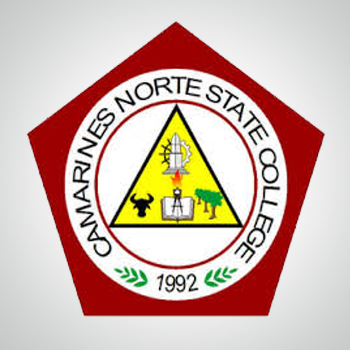
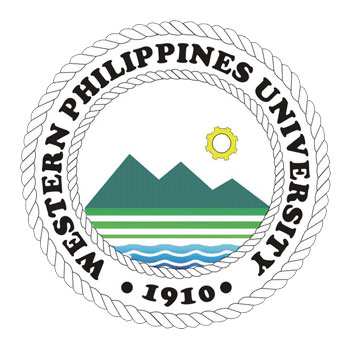
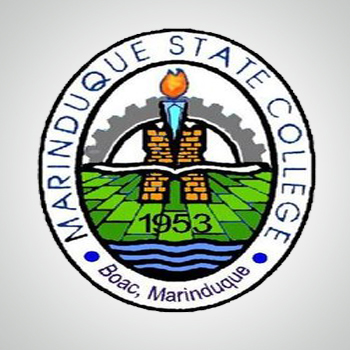
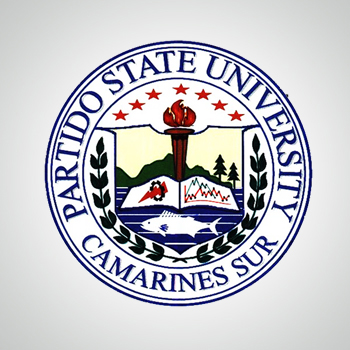
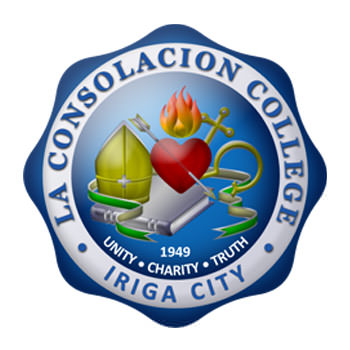
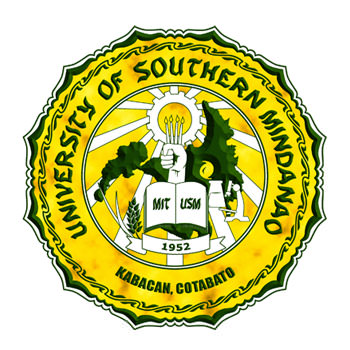
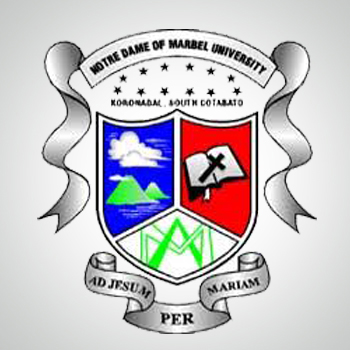
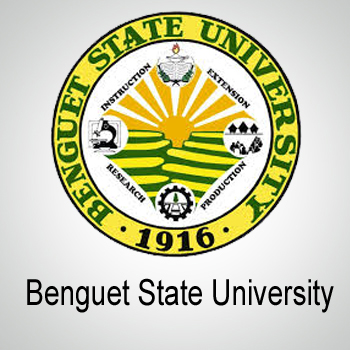




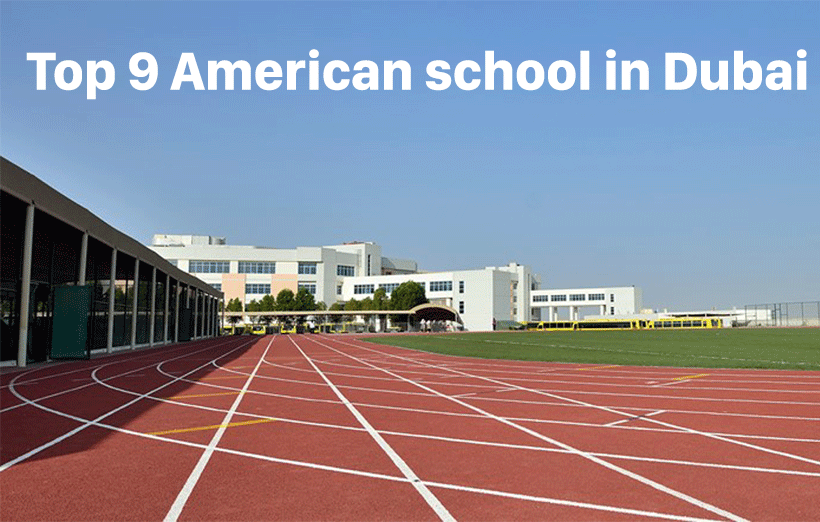




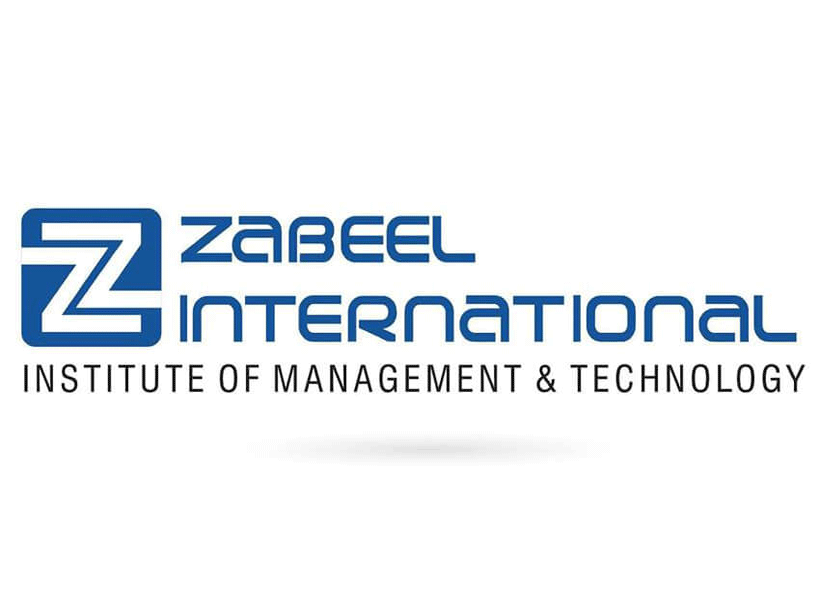
Leave a Reply